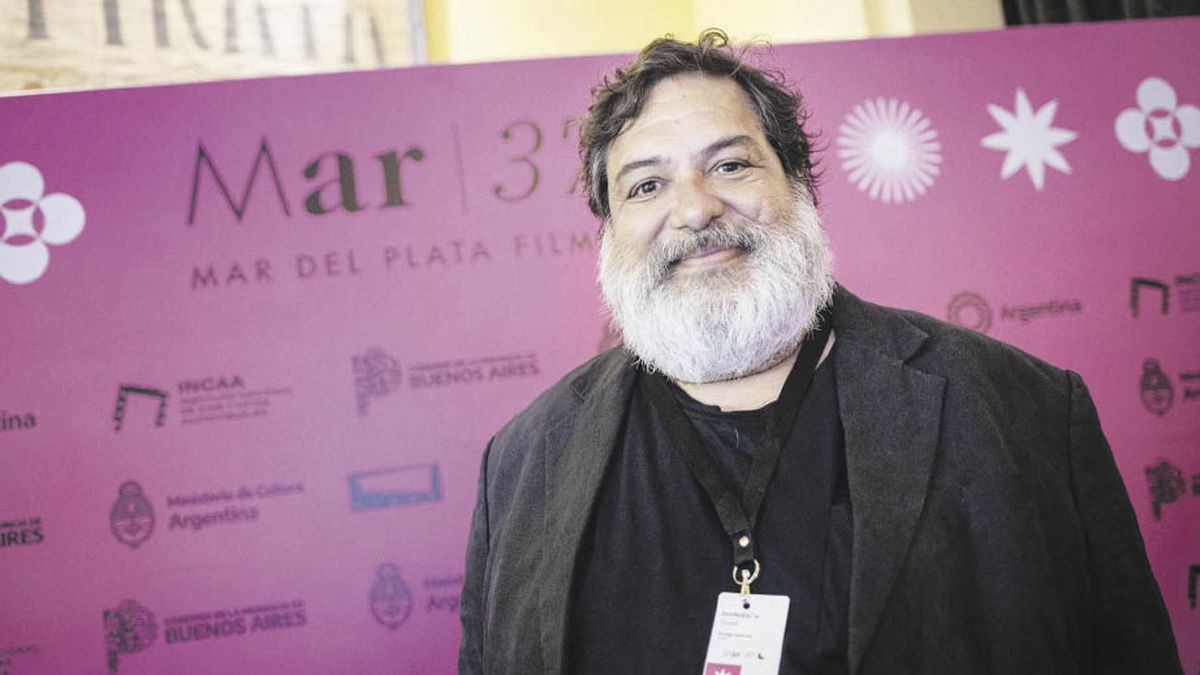Rodrigo Sepulveda: Part at the home of the Llanca family, today a historical heritage because it is a typical fisherman’s house, and Neruda was also their regular customer. He leaves at the Hostería Santa Elena, where Doña Elena served the poet her conger eel caldillos. We painted the front, which was in poor condition, but now they are going to renovate everything. We couldn’t film in the Casa Museo, so we did it in that of another writer, not so famous but much loved, Eduardo Vergara. It is the first version to be filmed in the places where Antonio Skármeta set his work, because his version, the most faithful to the book, had to be made in Portugal, so he could not set foot in Chile. And Michael Radford’s version, which is brilliant, “Neruda’s Postman” (“Il Postino”), was filmed on an island in Sicily, set in the 1950s.
Q.: Neruda has fallen out of favor with feminists. Won’t they reproach her for having made this film right now, where she has a nice image?
RS: There is a boiling issue out there, but I feel that ours is a celebration of poetry, not so much of the poet. And we celebrate saying, writing, the epistolary relationship. Today we live in a fast-paced world, where WhatsApp imposes a brutal way of communicating. As a child, I had to live outside the country, and I used letters to communicate with my friends, with my grandfather, who demanded of me! write well, at the age of ten. That’s how I was formed. But also, in a rereading, ours is also to celebrate the figure of the woman. She is no longer a wild, wild beast, as in the original work, but an empowered woman, who also writes poems.
Q.: It is not the only change. There appears a nun.
RS: Yes, a new character, a nun who is a cook and matchmaker, who helps make the love of the couple in love come true. The play takes place in 1969, a time of worker priests, of nuns who cooked for the homeless, a time of change, there was a yearning society, wanting to change everything. We did not even imagine the bitter taste of the dictatorship.
Q.: Skármeta’s work covers more than that year.
RS: Yes, but with Guillermo Calderón, a very important playwright, we adapted only the first part, the laughing part, because I had just made a drama set in the dictatorship, “I’m afraid of a bullfighter”, and I wanted to make a romantic film (seeing the reaction from the public in Mar del Plata, I discover that I got a romantic comedy). That’s what we need, a love movie, that leaves us with a smile. We are used to talking about love, it is a very recurring topic, but it is necessary to breathe from the pure, the innocent. Look at this couple, when they really make love, that’s when they write their letters.
Q.: In this regard, aren’t the interpreters too pretty to play a girl from the village and a fisherman turned postman?
RS: Well, more than beauty, youth was important to me, and also both, Andrew Bargsted and Vivianne Dietz, already had chemistry, because they had just performed “Romeo and Juliet” in a theater in Santiago, a version quite, quite faithful to the translation. of Neruda, which is the best known in Chile. For me the two most beautiful things that have been made from Shakespeare are Neruda’s translation of “Romeo and Juliet” and Nicanor Parra’s of “King Lear”, very parriana, by the way. I consider them part of my food, as well as Faulkner’s “Wild Palms”, translated by Borges, and Marguerite Yourcenar’s “Memoirs of Adriano”, translated by Julio Cortázar.
Q.: There you add a less appreciated author, Dino Ramos.
RS: Ah, when you hear “Welcome, love”, by Palito Ortega. It’s just that it fit perfectly with the scene. And you can also listen to “Look little girl”, by Los Jaivas, which today is a campfire song. It is sung at all campfires. We wanted to add Spinetta’s, “Muchacha ojos de papel”, but he didn’t give us the budget.
Q.: How was the relationship with Netflix?
RS: Extremely empathic. We went with the proposal and they said “We love it. If they find it similar to what you told us, we are happy”. And they are happy, because they premiere it simultaneously even in the United Arab Emirates.
Source: Ambito
I am an author and journalist who has worked in the entertainment industry for over a decade. I currently work as a news editor at a major news website, and my focus is on covering the latest trends in entertainment. I also write occasional pieces for other outlets, and have authored two books about the entertainment industry.




